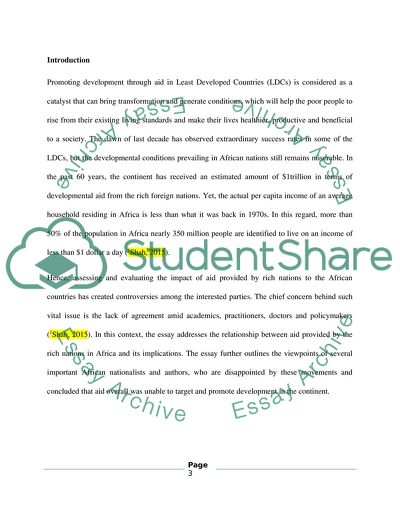Cite this document
(Aid Has Been Largely Ineffective in Promoting Development in Africa Coursework Example | Topics and Well Written Essays - 2750 words, n.d.)
Aid Has Been Largely Ineffective in Promoting Development in Africa Coursework Example | Topics and Well Written Essays - 2750 words. https://studentshare.org/social-science/1855255-aid-has-been-largely-ineffective-in-promoting-development-in-africa-discuss
Aid Has Been Largely Ineffective in Promoting Development in Africa Coursework Example | Topics and Well Written Essays - 2750 words. https://studentshare.org/social-science/1855255-aid-has-been-largely-ineffective-in-promoting-development-in-africa-discuss
(Aid Has Been Largely Ineffective in Promoting Development in Africa Coursework Example | Topics and Well Written Essays - 2750 Words)
Aid Has Been Largely Ineffective in Promoting Development in Africa Coursework Example | Topics and Well Written Essays - 2750 Words. https://studentshare.org/social-science/1855255-aid-has-been-largely-ineffective-in-promoting-development-in-africa-discuss.
Aid Has Been Largely Ineffective in Promoting Development in Africa Coursework Example | Topics and Well Written Essays - 2750 Words. https://studentshare.org/social-science/1855255-aid-has-been-largely-ineffective-in-promoting-development-in-africa-discuss.
“Aid Has Been Largely Ineffective in Promoting Development in Africa Coursework Example | Topics and Well Written Essays - 2750 Words”. https://studentshare.org/social-science/1855255-aid-has-been-largely-ineffective-in-promoting-development-in-africa-discuss.


